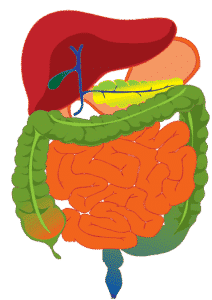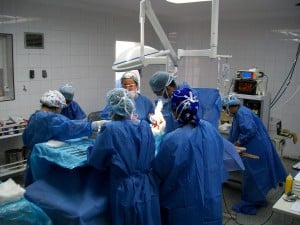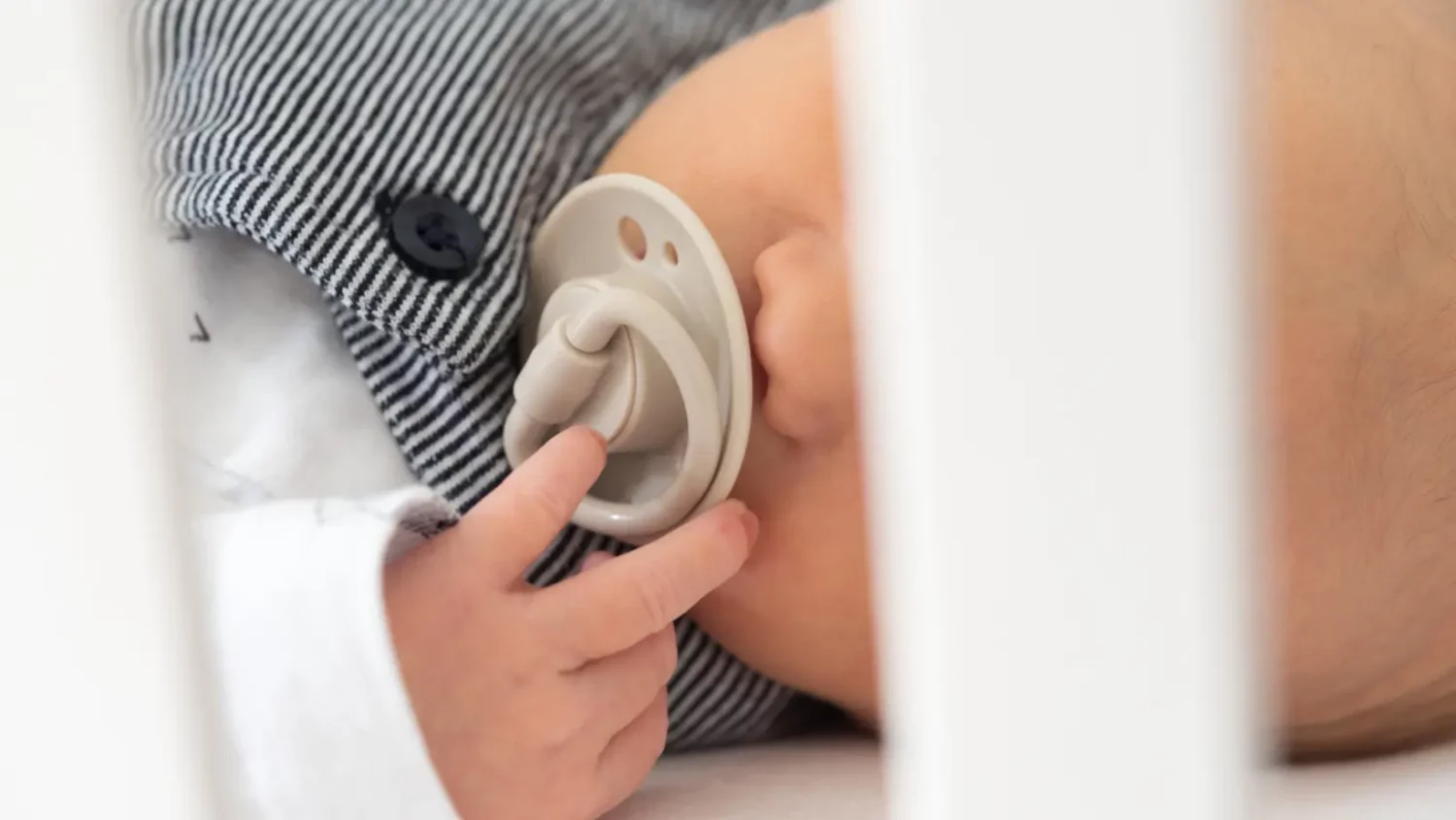Updated article : April, 2024
Did you know that up to 80% of the human body’s immune cells are found in the digestive tube? Today, the intestinal wall is frequently mentioned as the human body’s second brain, due to its important immune function and neural impact. An intestinal imbalance impacts many of the body’s functions.
In this article:
The stomach and the small and large intestine aren’t digestive and absorption organs. They are an important set of immune system organs in humans, active from birth due to bacteria. These bacteria are essential and irreplaceable living organisms.

Many of you contact me looking for advice about babies struggling with different infections. These babies are frequently treated using antibiotics. I can understand why you aren’t comfortable with this situation.
Children that receive antibiotics, for example during the neonatal period, will have an altered intestinal microbiota. They will have a higher risk of developing infections or illnesses, such as asthma, obesity and diabetes.
Have you wondered what a baby’s immune system is like at birth? Of course, it’s immature, but what else? The mother will have transmitted many antibodies from her immune system to the baby during pregnancy. She will continue to do so when breastfeeding. But did you know that the way the baby was born will also influence its intestinal immunity? It’s true! I’ll explain.
Vaginal Birth
Women that consume probiotic supplements and prebiotics found in nuts, fibres and vegetables during pregnancy help both their own intestinal environment and their future baby’s.
Babies that are vaginally delivered will be in contact with thousands of good bacteria. Specifically, these are bifidobacteria (probiotics) that live in their intestine and help defend them against invasive microbial pathogens (bad bacteria, viruses, etc.), prevent metabolic illnesses such as diabetes, obesity, and ensure that they’re generally healthy.
According to a recent Finnish study, more than 72% of the initial microbes that form the newborn’s microbiota come from the mother’s intestine. Each baby has their personal microbiota. It’s unique, like their fingerprint. A baby born at term has microbiota different from that in a premature baby. They way they’re delivered also influences the make-up of the microbiota, as does breastfeeding.
We now know that, scientifically, the amniotic fluid, placenta and meconium (baby’s stool at birth) aren’t sterile in-utero. These all have a few bacteria, and when consuming the amniotic fluid and via the placenta, the baby will be in contact with certain bacteria. These will then be found in their stool.
During their intra-uterine life, the baby is already in contact with the first bacteria that will line their intestine. Added to a healthy pregnancy, vaginal birth without antibiotics, and breastfeeding, these elements will have a major positive impact on the baby’s immune and metabolic systems and their development.
Why is this natural infection positive? When they enter their extra-uterine life, the baby has to develop their intestinal microbiota and flora. Intestinal microbiota is a relatively recent term designating the immunity part of the baby’s intestinal environment. It’s an ecosystem that groups together bacteria contributing to their health and protecting them against infectious agents, bacteria and viruses. The good bacteria settle in the intestinal wall and prevent bad bacteria from also settling—it’s the system’s natural antibiotic. Thus, the intestinal microbiota develops in parallel with the child’s growth and development.Preliminary studies on humans and animals show that a good microbiota helps with intestinal motility, pain perception, behavior, mood and neurocognitive development.
Caesarian Birth
 If the baby is born by caesarian, do they have adequate protection in their intestine?
If the baby is born by caesarian, do they have adequate protection in their intestine?
In addition to arriving in a very sanitize environment that lacks useful bacteria for extra-uterine life, the baby has not been in contact with the desired infection that takes place as they descend through the vagina during normal childbirth. The mother’s and father’s skin microbes and breastfeeding will help develop the baby’s microbiota following their arrival. This is why the first skin-to-skin contact and breastfeeding is so important, as it will colonise the baby’s intestine with good bacteria. It will also compensate for the delay and imbalance in the newborn’s microbiota caused by the caesarian.
It is increasingly suggested to take probiotics to help rebalance the baby’s intestinal microbiota. The term “probiotic” means something that contains living microorganisms and has a positive effect on people consuming them. Probiotics will help nourish and develop the immune and glial cells in the intestine, among other things. This practice seems to show very promising result, since it contributes to the development of the intestine-brain axis, maximizing the neurocognitive function of the baby’s development.
Depending on the baby’s age and for breastfeeding mothers, consult a professional before taking them. This will help you take the right probiotic for the function you want to improve. Each probiotic is specific to the strain it impacts. For example, take Lactobacillus reuteri (BioGaia®) for colic or Lactobacillus plantarum (Tuzen®) or Bifidobacterium 35624™ (Align®) for an irritable bowel.
To learn more about this topic, go to Good vs. Not-so-Good Bacteria.


